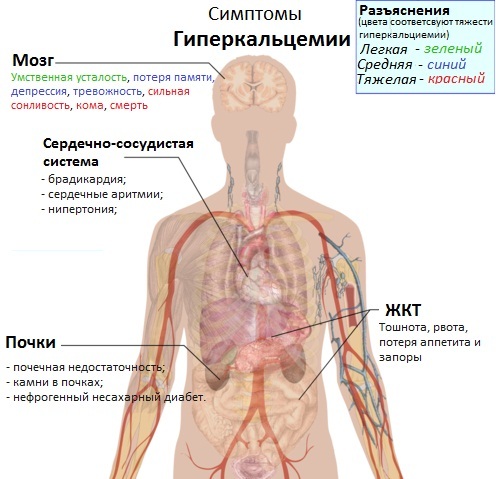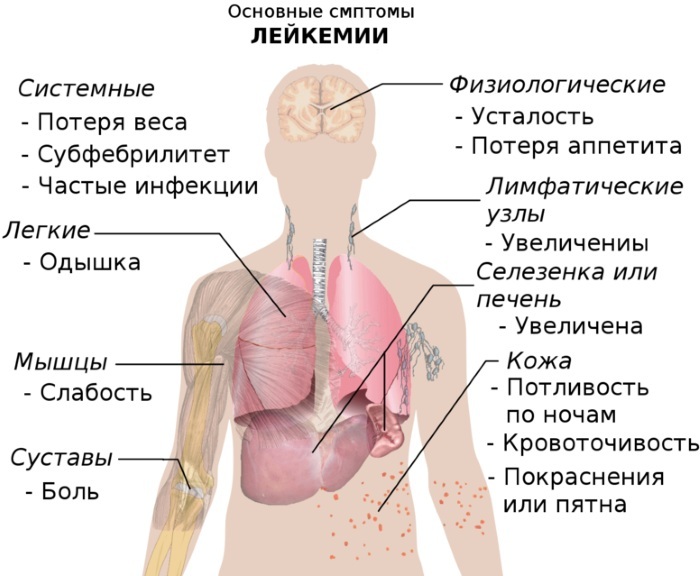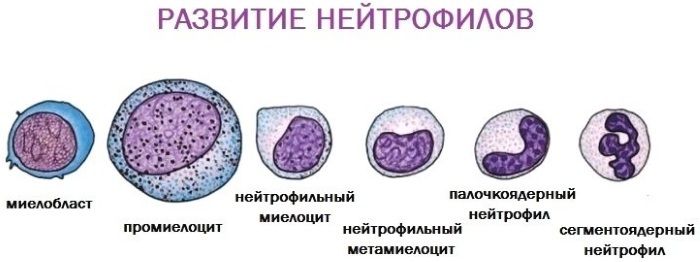Calcium - a mineral that is involved in many processes. It is important for the formation of bone tissue, promotes the release of hormones, the muscular musculature. It does not manage the activity of brain and nerve cells without his presence.
Hypercalcemia indicates an excess of material. This excess calcium valid indicators in plasma over 2.5 mmol / l. This phenomenon - a sign of the presence of the disease. About the beginning of the disease say when the rate varies from 2.0 to 2.5 mmol / l. Exceeding the limit of 3.0 indicates threatening symptoms.
The content of the article:
- 1 Hypercalcemia: what is it?
- 2 The dangerous hypercalcemia
- 3 Classification and forms of the disease
- 4 Causes of hypercalcaemia
- 5 symptoms
- 6 Urgent Care
- 7 Examinations and tests
- 8 treatment of hypercalcaemia
- 9 Drug therapy for mild disease
- 10 drug treatment of moderate to severe cases of hypercalcaemia
- 11 primary hyperparathyroidism
- 12 Oncology
- 13 Food
- 14 Hypercalcemia in children
- 15 Complications and consequences of hypercalcemia
- 16 Video of hypercalcemia
Hypercalcemia: what is it?
If the amount of free calcium in the analysis results is increased, such an anomaly is a symptom of many serious diseases. Pathology flows is not unique.
Intrigue of the disease - in a prolonged absence of symptoms, appearance as constipation, few can compare with the pathology.

Hypercalcemia usually develop due to intense bone resorption, but the reasons contributing to the development of the disease, a lot.
The dangerous hypercalcemia
Hypercalcemia bad for kidney function. Their ability to concentrate urine decreases, which leads to an increase in urine volume and increase the content of Ca in the blood. Mild hypercalcemia reduces the contractions of the heart frequency.
If the pathology is not treated, then the following complications:
- atrioventricular block;
- arrhythmia;
- acute renal failure;
- attacks in the form of seizures;
- heart stop;
- coma.
At a high level of calcium affected the nervous system:
- nervousness for no reason;
- weakness;
- lethargy;
- depression.
Further developments leading to disorientation, possible coma.
Classification and forms of the disease
Hypercalcemia - it is a disease, which is usually classified under the Ca concentration in the blood plasma:
| hypercalcemia | The concentration of free Ca / mmol / L | The concentration of total Ca / mmol / L |
| easy | 2 | until 3 |
| moderate | 2,0 – 2,5 | 3,0 – 3,5 |
| Weight | 2,5 | 3.5 or more |
In moderate and severe disease without proper therapeutic action likely to develop nephrocalcinosis, calcification of the skin, bleeding lungs, heart muscle and digestive organs. Since the root cause are usually metastases in bone and hyperparathyroidism, patients experience painful discomfort in the joints and bones.
Causes of hypercalcaemia
The overabundance of matter in the plasma is due to the intensive production of parathyroid hormone. Hyperparathyroidism - a condition where the calcium out of the bones and into the plasma.
Causes:
-
Primary hyperparathyroidism is diagnosed primarily in women after 50 years. The pathology occurs due to dysfunction of the parathyroid glands. One or more glands produce large amounts of parathyroid hormone. The reason for these changes - adenomas, benign tumors. Violation of the ratio of calcium is not able exclude himself.

- cancer tumors - a common cause, has no reference to the parathyroid glands. Stimulate growth of calcium in the blood can tumors: lung; breast; mouth; kidney; female reproductive organs. In patients, the disease often develops on the background of the primary pathology.
- In the treatment of hypertension prescribed thiazide diuretics. Under the action of the drug, the calcium in the urine does not come out from the body. His is delayed kidneys respectively in the blood concentration of the substance increases. When it comes to the diagnosis of hypercalcemia should pay attention to drugs used to treat hypertension: Gidrohlorotiozid; Hlorotalidon; Indapamide.
- Chronic renal insufficiency in shape. Reduced renal function due to organ transplantation, stay on dialysis, increases the amount of calcium in the plasma.
Negative factors - the cause of hypercalcemia:
- Burnett's syndrome. In the process of self-home people eat large amounts of antacids and milk, which is the cause of hypercalcemia. Drugstore antacids are less dangerous.
- Family gipokaltsiuricheskaya hypercalcemia. This is a feature of an organism, transmitted by inheritance. The diagnosis is discovered by chance. The signs are not manifested or are minor.
- Thyroid dysfunction. Severe disease - hypothyroidism, hyperthyroidism, have a negative impact on the regulation of metabolism, the intensity of the cells. Disturbed blood calcium levels structure.
- Hypervitaminosis of Vitamin A - is possible due to the uncontrolled use of dietary supplements.
- The lack of activity for a long time (immobilization).
- lung disease - sarcoidosis, defeat Koch stick - increase the level of vitamin D. Absorption thus amplified, resulting in hypercalcemia.
- The use of dietary supplements should be reasonable surplus promotes accumulation of excess calcium in the plasma.
- Insufficient intake of water (dehydration). The low amount of absorbed water results in a slight increase in blood calcium. Typically, when such an imbalance is renal pathologies.
- Side departing from used drugs.
symptoms
The disease may not manifest itself even at a moderate excess of calcium. Arrhythmia, headache, or intestinal problems patients are not associated with an imbalance in the structure of blood.

Early signs:
- vomiting;
- spasms in the abdomen;
- constipation;
- loss of interest in food.
Moderate for:
- fatigue;
- tachycardia;
- frequent urination.
The chronic form of:
- the formation of stones in organs;
- renal insufficiency.
In the critical case:
- convulsions;
- depression;
- confusion.
Depending on how the body is connected with the disease, symptoms may vary.
If the disease is associated with renal dysfunction:
- constant desire to drink;
- frequent urination;
- discomfort due to stones in organs.
Digestive system:
- spasms in the gut;
- vomiting;
- constipation.

Heart disease:
- arrhythmia;
- electrical activity.
Muscle tissue:
- convulsions;
- lethargy.
Skeleton:
- pain;
- deformation;
- the fragility of the bone tissue.
Neurology:
- depression;
- nervousness;
- memory loss;
- dementia.
Urgent Care
In severe pathology is shown urgent hospitalization of the patient. Can provide valuable assistance in the hospital.
The algorithm is:
- agents capable of affecting the blood calcium override;
- appoint a dropper with a saline solution to restore fluid balance in the body and the amount of urine;
- carried out via diuresis furosemide, under the control of the content of magnesium and potassium in the blood;
- shows a hemodialysis patient;
- designate administering calcitonin;
- administration of bisphosphonates.

From first aid, doctor's actions definition depends on the effectiveness of further treatment, prognosis.
Examinations and tests
Hypercalcemia - it is a disease that is usually detected at inspection and monitoring of the clinical picture of primary pathologies. In the first manifestation of disease symptoms and diagnosis for specification of destination adequate treatment, refer to the therapist.
After examination of the patient, anamnesis, auscultation of complaints of the patient is directed to delivery of biochemical blood analysis. Double study conducted to determine the amount of total and free calcium.
It recommended for the accuracy of the result:
- for 24 hours. before the study is not to drink alcohol-containing beverages;
- peretruzhdaetsya not refuse from excessive loads;
- for 72 hours. until analysis cease use of dairy products;
- blood sampling is performed on an empty stomach - stopped eating for 8 hours.
If the calcium in the blood above the normal range, the doctor prescribes the surrender of additional analyzes:
- Urine: Study on the calcium content; protein exception Bence-Jones;
- Blood: values of bone metabolism; PTH levels; kidney samples.
Reducing the level of phosphate in the blood, and high levels of PTH-related peptides, indicates hypercalcemia associated with cancer. Urine thus, may indicate a normal or slightly exceed it.
High rates of ESR in normal superphosphate, as well as protein-Jones in the urine in the diagnosis of myeloma indicate hypercalcemia.
To diagnose and prescribe instrumental methods:
- Radiography bone;
- Renal ultrasonography;
- densitometry;

- ECG.
If the physician deems it appropriate, may be assigned to CT and MRI.
treatment of hypercalcaemia
Hypercalcemia - it is a disease, the treatment of which is not unique circuit, because the causes of pathology and clinical picture - different.
Therapeutic effects depend on the following factors:
- Is the blood level of Ca-threatening, if the symptoms are.
- Which is a negative factor behind the pathology, and whether there is a need for therapy.
Drug therapy for mild disease
Mild mostly emergency help is not needed, but at this stage it is necessary to find out the cause of changes in the structure of blood. Also, changes in the analysis and development of the disease should be monitored more closely.
Drug therapy in cases with a mild course do not need, but to give up vitamin-mineral complexes worth. It is also necessary to respect the water balance and not to abuse the milk and milk products.
drug treatment of moderate to severe cases of hypercalcaemia
Mild course of the disease is treated on an outpatient basis. If calcium levels significantly above normal and a critical, required to normalize patient treatment. It is important to prevent the violation of bone tissue and a negative effect on the kidneys. Scheme of treatment depends on the underlying cause, and general condition of the patient. Therapeutic methods are aimed at eliminating the cause.
Physician assigns tablets and injections for intravenous administration:
- hormone - calcitonin - contributes to the conservation of bone mass;
- intravenous injection feed water is reduced Ca concentration in the plasma;
- hormonal agents - eliminate inflammation effective when excess vitamin D;
- diuretics - the withdrawal of excess calcium, give a positive result in myocardial insufficiency;
-
dialysis expedient for plasma cleaning of excess calcium and other inclusions kidney damage - a method used when all others do not give the expected action;

- bisphosphonates - effectiveness in excess calcium in the blood. (Etidronate);
primary hyperparathyroidism
In primary hyperparathyroidism with age-appropriate, the degree of influence on the bone, it may be decided on the need for treatment of the parathyroid glands. In this way it is possible to get rid of different types of hypercalcaemia, hyperparathyroidism provoked.
As an alternative to surgery is a drug - «Sensipar». In cases where the symptoms are complicated by osteoporosis, bisphosphonates are prescribed - means of reducing the likelihood of fractures.
Oncology
Hypercalcemia - it is a disease in which, in the event that the primary pathology - oncology nature, it is important to select the optimal treatment regimen, with the participation of the patient.
Oncological pathologies appoint:
- intravenous injection;
- bisphosphonates;
- «Sensipar».
Drug treatment is recommended to combine with physical therapy. All actions are better adjusted to the doctor.

Smoking speeds up the excretion of calcium from the body, therefore, nicotine should be abandoned altogether.
Food
Alternative medicine hypercalcemia no effective, as the first signs of disease appear, requiring adequate treatment drugs. Unconventional methods produce a positive result in their inclusion in the complex scheme of conservative therapy or as a means of preventive action. Calcium is not produced by the body and gets into the system with food.
When excessive accumulation of Ca, should be excluded from the usual menu:
- Sesame oil;
- almonds, hazelnuts;
- all dairy products;
- sardine oil;
- wheat bread;
- rice;
- dark chocolate, halva.
To reduce the concentration of calcium in the plasma, can be replaced with normal drinking water in the distilled, but it's worth noting that long-term drinking regime such water is unacceptable. Also hypercalcemia shown to use oxalic acid. Any adjustments in the treatment must be reconciled with the doctor, so as not to exacerbate the problem.
Hypercalcemia in children
Hypercalcemia especially dangerous when diagnosed in children. This disease affects the growth and development of bone tissue, and such breach is different insidious, since the initial stages of the diagnosis difficult. Pathology develops asymptomatically.

The causes of the disease, symptoms and treatment in children:
| Nozolo-cal form | Causes | Clini-Ceska picture | Treatment | Total sympto-Matica |
| Intensive leaching Ca from bone tissue | ||||
| Primary hyper-paratireoz |
|
|
operative intervention |
|
| Paraneop-lasticheskaya hyper kaltsiemiya (cancer) | 15% zlokache-governmental bodies in tumors, leukemia |
|
Conventional circuit (KONSER-servative medicine) | |
| Tireotom-oksikoz | Diagnos-tiruetsya 20% of patients | The high intensity of absorption in the bone | X-rays, note the symptoms and signs of osteoporosis | |
| Feohro-nitsitoma | By reducing the volume of circulating blood-iruemoy; gemokon-centration | The clinical picture feohromo-tsitomy; on the X-ray graphy - signs of osteoporosis | Treatment of primary disease | |
| Lack of locomotor activity (-tion of immobilization) | In the absence for various reasons, the load on the skeleton | Osteopenia, renal dysfunction; signs giperkal-tsiemii |
|
|
| Minimum Ca excretion in urine | ||||
| Hyper-paratireoz | Autosomal recessive disorder in the homozygous form |
|
Paratireo-idektomiya with prescribing Ca and Vitamin D | |
| Burnett's syndrome | Edinovre-mennoe use of antacids and funds from Ca |
|
rehydration; pischevari-tion therapy system | |
| Intensive Ca absorption in the intestine | ||||
| Excess of vitamin D | Excess consumption of the drug; obezdvi-field intensity of CRF |
|
|
|
| Granules-matozy |
|
Signs of moderate-giperkal tsiemii | Diatomaceous therapy; ketoconazole |
Also cause of hypercalcemia is prolonged parenteral feeding, adrenal insufficiency in chronic form.
Complications and consequences of hypercalcemia
Complication of severe hypercalcemia syndrome may have a negative impact on the pathology of all systems and organs. Prolonged moderate or high increase of calcium in the blood associated with infection, fractures, prolonged lack of physical activity, pregnancy, intake of antacids without control, can come back to haunt some signs.
For example:
- fever;

- convulsions;
- nausea;
- muscle spasms;
- intense pain in the abdomen;
- uncontrolled vomiting;
- blurred consciousness;
- lethargy;
- coma.
More than half of cases are fatal.
Hypercalcemia - a disease for which it is difficult to predict. Sometimes to the disease has receded enough to cancel or reconsider taking medication diet, but very rarely, patients learn about the disease in a timely manner.
In most cases, such a change in the structure of blood, requires balance correction by a lifelong medication. Healthy lifestyle, moderate exercise reduces the likelihood of developing disease in the future.
Registration of the article: Lozinski Oleg
Video of hypercalcemia
The causes of hypercalcemia, symptoms and treatment principle:



